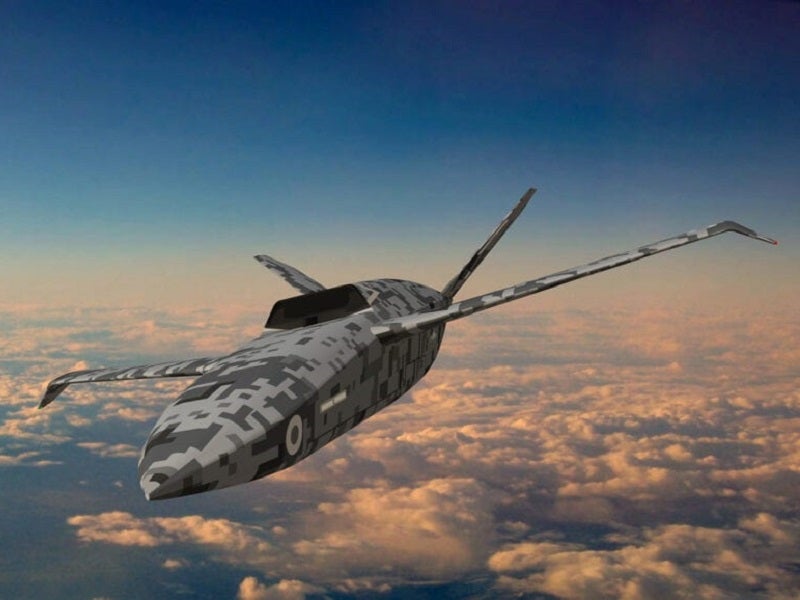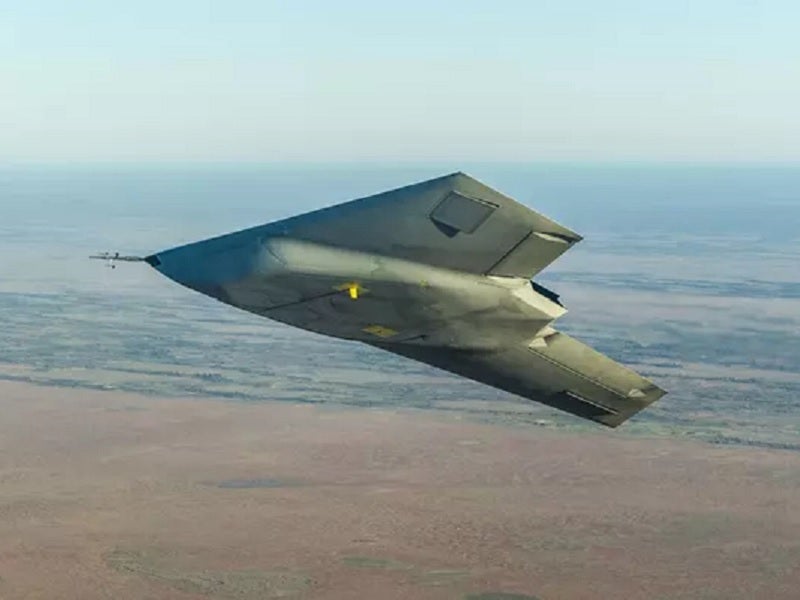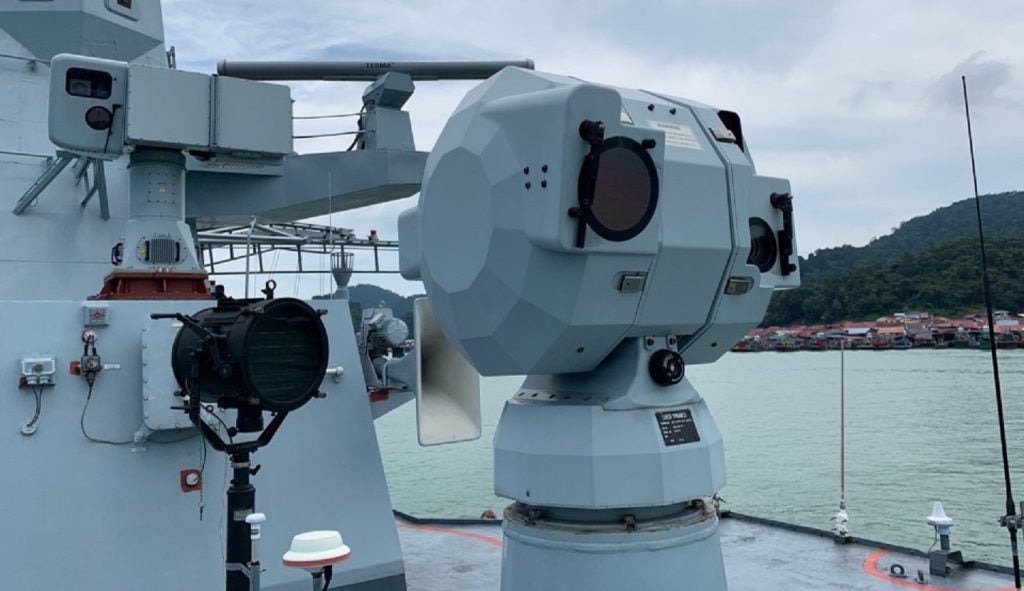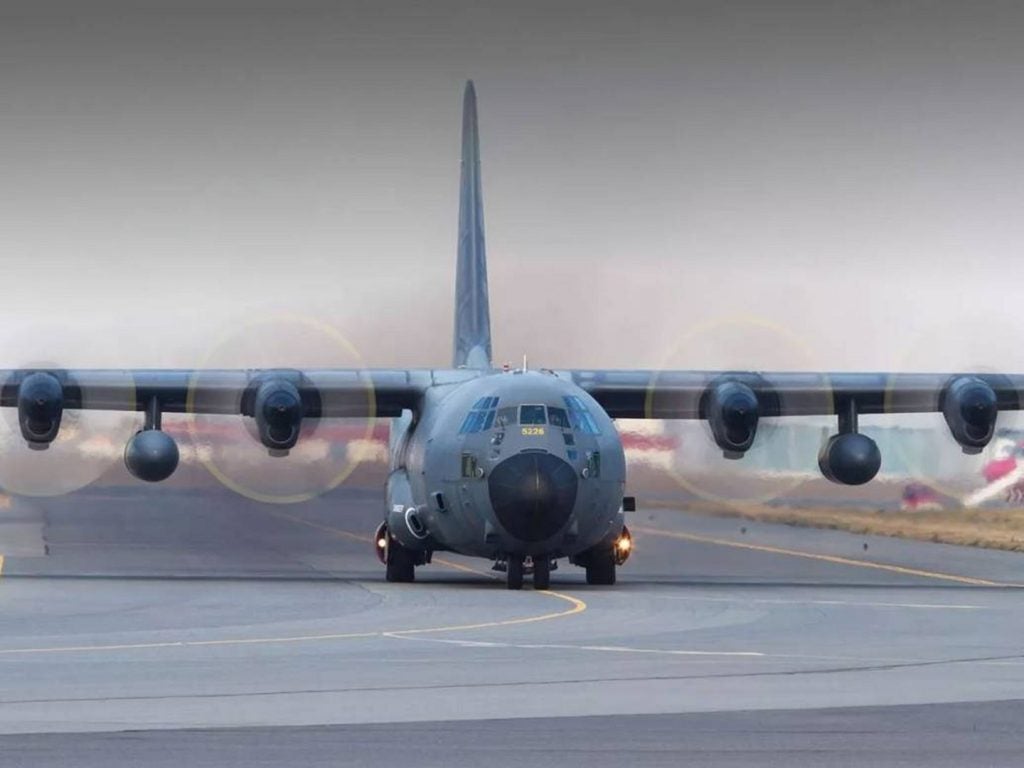
Hailed at the outset as the next step in the development of the UK’s Future Combat Air System (FCAS) next-generation fighter capability, the cancellation of the platform’s supposed complementary Loyal Wingman uncrewed combat aircraft, dubbed Project Mosquito, is another milestone in the country’s journey of innovation and abandonment.
Initiated in Q1 2021 with a £30m ($35.46m) contract award to Spirit AeroSystems in Belfast to develop and flight test a Loyal Wingman demonstrator by Q4 2023, the Mosquito platform would be a key element in a uncrewed-uncrewed teaming system-of-systems approach with the Tempest FCAS at the core, surrounded by Mosquito UCAVs and other systems being developed under the Lightweight Affordable Novel Combat Aircraft (LANCA) programme.
By the end of Q2 2022, Project Mosquito was dead, with Royal Air Force Air Chief Marshall Sir Mike Wigston stating on 14 July at the Global Air Chief’s Air Power Conference in London that a “huge amount” had been learned from the programme. The focus, however, had shifted to systems that could be “operationalised” at a “much faster pace”.
Air Commodore Jez Holmes, head of the Rapid Capabilities Office (RCO), at the time of the cancellation on 24 June this year, said: “Through Project Mosquito and other experimentation activities the Royal Air Force has made substantial progress and gained significant value in understanding and harnessing a range of future uncrewed capabilities. This decision maximises the learning accrued to date and enables a change of direction for the LANCA programme.
“The Rapid Capabilities Office will now quickly launch activities to aggressively pursue the RAF’s unchanged firm commitment to integrate advanced uncrewed capabilities into the near-term force mix with more immediate beneficial value,” Holmes added.
Questions surround the decision to axe Mosquito, despite the RCO’s statement of a commitment to “the post-2035 capability space” where “integration through a system-of-systems approach has been a key requirement from the outset”.
How well do you really know your competitors?
Access the most comprehensive Company Profiles on the market, powered by GlobalData. Save hours of research. Gain competitive edge.

Thank you!
Your download email will arrive shortly
Not ready to buy yet? Download a free sample
We are confident about the unique quality of our Company Profiles. However, we want you to make the most beneficial decision for your business, so we offer a free sample that you can download by submitting the below form
By GlobalDataAccording to the RCO, the decision “was informed by parallel analysis and capability experimentation” conducted by the RAF and the Defence Science and Technology Laboratory. The analysis concluded that “more beneficial capability and cost-effectiveness appears achievable through exploration of smaller, less costly, but still highly capable additive capabilities”.
Jeremy Quin, UK Minister of State for Defence Procurement, said on 4 July that Mosquito “was not a procurement programme”, rather a technology demonstration project within the broader LANCA programme, designed to “examine ways to achieve significant cost and time reductions” in developing future uncrewed combat platforms.
“The learning accrued within the design phase of the project has a useful read across to other research and development projects as part of the wider LANCA and FCAS portfolio,” Quin said.
Harry Boneham, aerospace analyst at GlobalData, speaking with Airforce Technology on the ending of Project Mosquito, said that it appeared the UK was still committed, in the long term, to the procurement of an uncrewed Loyal Wingman-type combat aircraft.
“In the short term, it seems that the intention is to procure a range of the unmanned assets which can be incorporated to support the existing fleets of [the F-35] and Typhoon. So, these platforms might be bringing sort of EW, communications, ISR, suppression of air defence capabilities, among other things,” Boneham said.
“One of the main things which has driven to cancellation of Mosquito is the cost-effective aspect, I think they’ve realised it will cost quite a lot. So, in the near term the incorporation of a range of uncrewed assets could prove more cost effective if it’s managed properly,” he added.
Mosquito to Ghost Bat?
Another possibility for the cancellation of Mosquito is that allies may be developing similar capabilities, leading to a potential pooling of resources or indeed outright acquiring platforms from overseas. Boeing Australia is currently developing the MQ-28 Ghost Bat as a Loyal Wingman platform, completing flight tests in 2021.
Might the UK Mosquito have also met its match when facing the political, financial, and military benefits of commonality? Potentially, according to Boneham.
“Looking further forward into the long term, it seems that the intention is to incorporate a Loyal Wingman platform, whether it’s UK-developed or whether it’s a foreign platform. That long-term timeline may again allow other platforms which are undeveloped foreign platforms, such as the MQ-28 Ghost Bat, to reach maturity and they might raise potential for an off the shelf purchase,” Boneham said.

According to Boneham, the Ghost Bat would “almost certainly be cheaper to purchase” as an off-the-shelf platform, with GlobalData forecasts showing Australia spending $86m between 2022-25 in the development of the system.
“Other options include the Valkyrie developed by Kratos, but the Ghost Bat reportedly has greater capabilities; it’s reportedly faster and has a greater range. In terms of cost-effectiveness, which has been raised as a sort of key point, it would be much cheaper [than a UK-developed platform],” he said.
“The flip side is that if we’re talking about the UK defence industrial base, a UK-developed platform would obviously generate a lot of jobs. Buying an off-the-shelf platform would, even from an ally like Australia or the US, likely remove, or the very least greatly diminish, the opportunity for UK industry. However, I think for cost-effectiveness and price point, non-UK platforms will probably take precedence.”
UK – the big loser?
Mosquito has gone to same way as Taranis, and the Herti and Mantis systems before it, with industry and their main military buyer taking forward lessons learned but falling short of developing service-entry platforms. Instead, Mosquito (2020s) could become Ghost Bat, Herti’s capability (early 2000s) instead filled by the Thales WK450 Watchkeeper, the Mantis (late-2000s) appearing to lose out in favour of the MQ-9A Reaper which in turn will be replaced by the newer MQ-9B SkyGuardian, while Taranis’ stealth UCAV (early 2010s) development ended and wrapped into the French nEUROn effort.
Considering the possible benefit to the UK’s aerospace industry, had such platforms been able to be matured into capabilities ready to enter service? A generation of engineering lessons learned and manufacturing efficiencies would have been found ready to apply to the Mosquitos of tomorrow.
Taking the acquisition of the Watchkeeper, it was revealed on 31 May 2022 that the programme’s capital departmental expenditure limit totalled £931.8m. Official figures from last year show a total of 47 Watchkeepers in the UK inventory, with 11 active, down from an inventory and service peak of 52 in 2016 and 24 from 2018-2020 respectively.
A total of seven Watchkeeper UAVs have been lost in accidents. On 5 July, Quin stated in a parliamentary written answer that the platform is expected to remain in service until 2042.
Elsewhere, the MQ-9A Reaper replacement platform, the MQ-9B SkyGuardian, dubbed the RG1 Protector, is already over budget and delayed. Service entry is slated from 2024.
For Boneham, a return on UK investment in such development programmes could be that UK industry is gaining in “knowledge and understanding” of the sector, with Rolls-Royce and Qinetiq having been part of Taranis, Northrop Grumman UK and Spirit Aero Systems in Belfast and Intrepid Minds aligned with Mosquito.
“A positive perspective would be that these companies are cultivating a knowledge base and understanding of the sector, and it could be argued that this knowledge is allowing UK companies to keep pace with those overseas which are also developing their own platforms. That would potentially keep the door open for partnerships down the line,” Boneham said.
Fantasy fleets
GlobalData data shows that between 2022 and 2032, £352m will be invested into the UK’s LANCA programme, indicating that money is being spent in order to secure the capabilities that are considered to be necessary for the conflicts of the future.

The balance, as ever, is how much to invest in national industrial capabilities, and what to outsource? The UK’s other leading branches of the military, the British Army and Royal Navy, are at opposite ends of the industrial spectrum. For the land, the UK has divested itself of much of its capability and appears reliant to imported knowledge and platforms.
At sea, it has long been policy that UK warships are manufactured in the UK, with a capable maritime industry sustained, albeit with noticeable peaks and troughs. Where then for air? The Tempest FCAS looks to have secured the aerospace industry for the development of crewed fighter platforms for the next generation.
However, an opportunity looks to have been constantly squandered in the development of indigenous uncrewed systems that find a way into service. A fantasy fleet potentially comprising the Taranis, Herti, Mantis, Mosquito, and their successors, will remain just that.







